June 2020 National eResearch Newsletter
Welcome to the June 2020 National eResearch Newsletter
Message from AeRO
Following the success of C3DIS Virtual, we will be making the presentation slides and recordings available shortly. Follow the AeRO Twitter account (https://twitter.com/AeRO_eResearch) for updates.
Planning is also underway for the eResearch Australasia conference, and we look forward to sharing more information shortly regarding conference dates and format.
In these challenging times, increased collaboration will be key to the continued success of the eResearch sector. A friendly reminder that our National eResearch Support Registry (https://aero.edu.au/national-eresearch-support-registry/) can help you find an eResearch support service, Digital Drop-in Session or Hacky Hour close to you.
As always, we look forward to working with our members and other eResearch organisations – feel free to touch base regarding your collaboration opportunities.
Loretta Davis – AeRO Executive Officer.
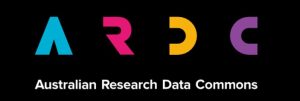 |
ARDC Platforms Open Call 2020 Overview and Q&A: 18-Jun
The ARDC Platforms Program seeks to increase the number of researchers with access to platforms, both in terms of absolute number and in terms of diversity of disciplines. It will build on the 2019 open call by encouraging interaction between new applicants and those projects that were successful in the 2019 open call, and will continue to encourage reuse of existing platforms, components, and approaches. This Q & A session about the open call will take place on Thursday, 18-Jun, 11:00 to 11:50 AEST. Register at https://register.gotowebinar.com/register/5891868704240435724. ARDC Platforms Program: https://ardc.edu.au/collaborations/strategic-activities/platforms/. |
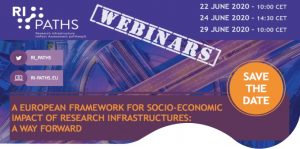 |
Socio-Economic Impacts of Research Infrastructures Webinars: from 22-Jun
The RI-PATHS project invites you to three dedicated online webinars tackling the theme “A European framework for socio-economic impact of research infrastructures: A way forward”. 22 June 10:00-13:00 CET 24 June 14:30-16:30 CET 29 June 10:00-13:00 CET |
 |
International Geochemistry Workshop: 23-Jun
This workshop will be held attached to the Goldschmidt 2020 conference. The Workshop “Earth Science meets Data Science – Services & Systems, Policies & Procedures, Tools & Techniques for Geochemistry” will be held on 23 June, unfortunately from Midnight to 5.00 am (AEST). This event is free to all participants Register here: https://forms.gle/8KwUmEHLBnGPGGyP8. |
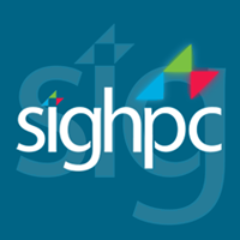 |
HPC Education and Training Workshop: 25-Jun
The workshop will engage the international community in sharing best practices, resources, materials, challenges, and opportunities. The topics focus on teaching and learning computational science, data science, data analytics and High Performance Computing (HPC). There will be a series of presentations, panels, and discussions that will help to inform the community and foster an atmosphere of camaraderie and sharing. Register here: https://docs.google.com/forms/d/e/1FAIpQLSc4wDntFYMbBmdc2bQ35yEWiWPVVG4siFexqsAbde9DarwK8A/viewform. |
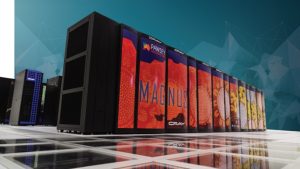 |
Pawsey Friday: Supercomputing Showcase: 26-Jun
Explore the breadth of benefits supercomputing can offer to you and your project. You will hear from researchers who are using Pawsey supercomputers, and working with our expert staff to enhance their code and workflows. This is a way to showcase diversity of thought and research when using supercomputers. You will leave the session understanding why or if supercomputers or its applications are for you, via a showcase of research using supercomputers. 14:00-15:30, AWST, 26-Jun-20, via Zoom. More information and to register: https://pawsey.org.au/event/pawsey-friday-supercomputing-showcase/. |
 |
ARDC Public Sector Bridges EOI Open: till 29-Jun
The ARDC Public Sector Bridges program aims to improve access and reuse of public sector data by researchers. ARDC is taking a two-stage approach to making investments in the Public Sector Bridges program. The first stage will be a call for expressions of interest (EOIs) followed later by a request for proposals (RFP). The EOI phase is intended to elicit preliminary ideas for the program, and to identify potential collaborations between public sector departments and research organisations. There will be an information session provided online on Thursday, 18-Jun, at 12:30pm AEST. Register at https://register.gotowebinar.com/register/8741984263296123147. For further information, go to: https://ardc.edu.au/collaborations/strategic-activities/national-data-assets/australian-data-partnerships/public-sector-to-research-sector-bridges/. |
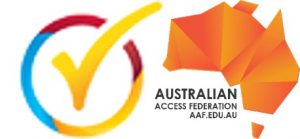 |
AAF Annual Compliance: by 30-Jun
Each year, AAF subscribers are required to submit a Compliance Statement ensuring that their organisation is fully compliant with the Federation Rules. Compliance Statements are to be signed by the organisation’s Primary Representative and submitted by 30 June 2020. To learn more about the compliance process, visit the website at: https://aaf.edu.au/subscribe/compliance.html. |
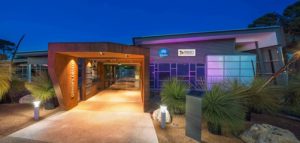 |
Pawsey Webinar Series: from 6-Jul
Pawsey is hosting an online training series to be held every Monday in July and August, from 11am to 12.30pm AWST, starting 6 July, 2020, via Zoom. We hope you’ll join us (from anywhere in the country, or the world)! For more information and to register, go to: https://pawsey.org.au/event/intro-pawsey/. |
| Data Quality Workshop: 6-Jul
The Australia Data Quality Interest Group is organising a “The Australia/New Zealand Data Quality Workshop” on 6 July. The objective of the workshop is for the Australian and New Zealand Data Communities to:
More information about the Group is here: https://ardc.edu.au/resources/communities-of-practice/. More information about the Workshop and registration is here: https://www.eventbrite.com.au/e/the-australianew-zealand-data-quality-workshop-tickets-109118235580. |
|
 |
Earth Systems Information Partners (ESIP) Summer Meeting is Online: 14/24-Jul
This meeting is virtual, giving more Australians the opportunity to attend. Six Australian organisations are partners of ESIP, but attending the US meetings has always been a challenge. This meeting’s program contains two special plenary sessions, one on drones and one on vocabularies; these have been specially timed to allow for Australian Participation. More information here: https://2020esipsummermeeting.sched.com/info. |
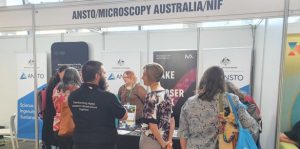 |
Imaging Core Facility Grants Available: 30-Jul
The Chan Zuckerberg Initiative invites applications for five-year grants to support the work of Imaging Scientists employed in imaging core facilities at non-profit universities or research institutes across the world. This applies to Imaging Scientists who work at the interface of biology, microscopy hardware, and imaging software at imaging core facilities. Invitation to apply for grants before July 30. See: https://chanzuckerberg.com/rfa/chan-zuckerberg-initiative-imaging-scientists/. |
 |
Scholarly Communication Workshops Online: from 3-Aug
FORCE11 is pleased to announce that Registration is NOW OPEN for the FORCE11 Scholarly Communications Institute (FSCI), which will be delivered virtually from August 3-13, 2020. See https://www.force11.org/fsci/2020. It comprises 16 online workshops covering best practices in many aspects of scholarly communication. Course abstracts are available at https://www.force11.org/fsci/2020/fsci-2020-course-abstracts. Registration now open at: https://www.force11.org/fsci/2020/registration-0. Address any queries to: fsci-info@force11.org. |
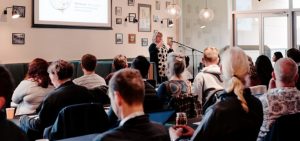 |
Australasia’s RSEs Invited to Online NZ RSE Conference: 9/11-Sep
For the last four years, New Zealand eScience Infrastructure (NeSI) has hosted a successful and increasingly popular Science Coding Conference. It would seem 2020 is a year of change, so along with hosting a free and online version of the event this year, NeSI is also renaming it to be the NZ Research Software Engineers (RSE) Conference. Motivation for the change is two-fold: to include people from all research communities who work on the cusp of technical and research domains; and to more fully align with the goals of the Australia / New Zealand RSE community. Read more here: https://www.nesi.org.nz/news/2020/06/same-conference-science-coding-conference-new-name-nz-research-software-engineers. |
 |
Pawsey and Quantum Brilliance Join Forces to Advance Australian Quantum Computing
The Pawsey Supercomputing Centre and Quantum Brilliance (https://quantumbrilliance.com/) are developing Australia’s first quantum-supercomputing hub for innovation. This collaboration is implementing recommendations from “Growing Australia’s Quantum Technology Industry”, a new roadmap from CSIRO (see https://www.csiro.au/~/media/Do-Business/Files/Futures/Quantum/20-00095_SER-FUT_REPORT_QuantumTechnologyRoadmap_WEB_200518.pdf). According to that Report, Australia’s emerging quantum technology sector could support 16,000 jobs and create over $4 billion annual revenue by 2040. This collaboration will see quantum expertise developed among Pawsey staff to then install and provide access to a quantum emulator at Pawsey and to work collaboratively with leading Australian researchers. For more information, see: https://pawsey.org.au/quantumcollaboration/. |
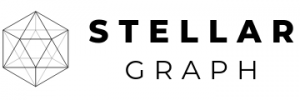 |
StellarGraph Machine Learning Library Version 1.0 Released
The open source StellarGraph library offers state-of-the-art algorithms for graph machine learning, equipping data scientists with tools to build powerful machine learning models for network data. The library allows users to detect patterns, make predictions and solve problems across industries including financial services, bioinformatics, transport and law enforcement. The new release is a culmination of the past three years of active research and engineering by CSIRO’s Data61. Read more about what it can do here: https://www.csiro.au/en/News/News-releases/2020/New-algorithms-help-scientists-connect-data-points-from-multiple-sources-to-solve-high-risk-problems. |
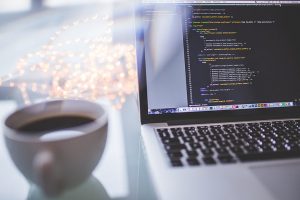 |
Developing the ACCS Training Catalogue
The Australian Characterisation Commons at Scale (ACCS) invites you to inform us of your training initiatives or needs to co-organise training events by filling this short form: https://docs.google.com/forms/d/e/1FAIpQLSdZ6MRpl-u50MeY4bmmeRM4dEnvJkUS4NspjKK3vdQhmdHG5g/viewform. The form will collect information about any existing or prospective workshops and would eventually be made publicly available for users. It can be filled multiple times to add more initiatives. We aim to collaborate with all relevant stakeholders to ensure we continue to provide relevant training together. |
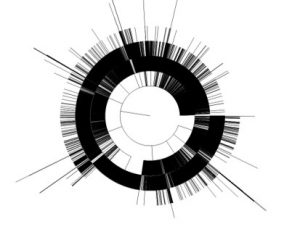 |
Working with Web Archives
The GLAM (Galleries, Libraries, Archives, & Museums) Workbench provides a large collection of Jupyter notebooks to help researchers make use of digital collections. A section on Web Archives has just been added to the Workbench, with the support of the International Internet Preservation Consortium. The new notebooks document Web Archive data sources and standards, and walk through methods of harvesting, analysing, and visualising that data. It’s a mix of examples, explorations, apps and tools using a range of repositories including the Australian, UK, and New Zealand Web Archives. Try it at: https://glam-workbench.github.io/web-archives/. |
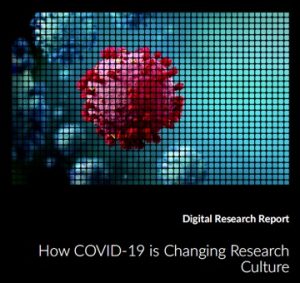 |
How is COVID-19 Changing Research Culture?
In Digital Science’s new report, How COVID-19 is Changing Research Culture, we investigate the research landscape trends and cultural changes in response to COVID-19. The report includes analysis of publication trends, geographic focal points of research, and collaboration patterns. We used the vast data within Dimensions (https://covid-19.dimensions.ai/?utm_source=aero&utm_medium=newsletter&utm_campaign=covid-report&utm_term=digitalsci) for the search and analysis on COVID-19 for this report. View the key findings and read the report here: https://www.digital-science.com/blog/news/new-digital-science-report-how-covid-19-is-changing-research-culture/?utm_source=aero&utm_medium=newsletter&utm_campaign=covid-report&utm_term=digitalsci. |
 |
AAF 2019 Annual Report Released
2019 was a significant year for the Australian Access Federation (AAF) in celebrating 10 years of successful and sustainable delivery of identity and access management for Australia’s research and education sector. Learn more about AAF’s achievements in the Annual Report at: https://aaf.edu.au/media/2020/pubs/2019%20AAF%20AR%20FIN.pdf. |
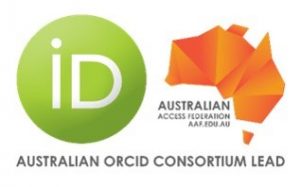 |
The ORCID Consortium Lead is asking all Australian ORCID members to complete a comprehensive self-assessment survey to gain an overview of how ORCID is implemented at member organisations, compared to ORCID requirements. This assessment is to ensure our members are receiving value from their premium membership.
If you would like to learn more about the ORCID Maturity Assessment contact orcid@aaf.edu.au. |
 |
Pawsey Hour: Ask.Me.Anything
Pawsey Supercomputing Centre invites you to join us for Pawsey Hour (Ask. Me. Anything), every Monday, 10am AWST, via Zoom. Our new way of reaching out to the research community, Pawsey Hour AMA is an opportunity to join in a discussion with Pawsey expert staff and an online community of peers:
For more information and to register, go to: https://pawsey.org.au/event/pawsey-hour-ask-me-anything-9/. |
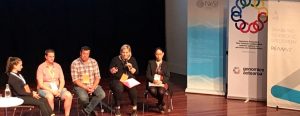 |
New HPC Skill-Building Working Group in New Zealand & Australia
Around the world, The Carpentries is teaching foundational coding and data science skills to researchers. However, a hands-on, beginner-friendly introduction to High Performance Computing (HPC) skills is still hard to come by. Fortunately, a group of Carpentries community members in New Zealand, Australia, the US, and Europe is ready to reinvigorate the HPC Carpentry initiative. They’re aiming to further develop existing course material, and hope to trial a newly updated workshop in 2020. Read more here: https://www.nesi.org.nz/news/2020/06/new-working-group-hpc-skill-building-taking-shape-new-zealand-australia. |
Contributions
This newsletter is based on contributions provided by members of the eResearch community, and draws on news articles and newsletters published across the sector. The Newsletter is published around the 16th of each month.
Please send any contributions (max. 100 words, plus a link and image) or pointers to any other relevant articles or newsletters to editor@aero.edu.au
Archives of these Newsletters are held at http://aero.edu.au/newsletters/.
Click HERE to add yourself to the eResearch Mailing List.
Thanks,
—AeRO Newsletter Editor

